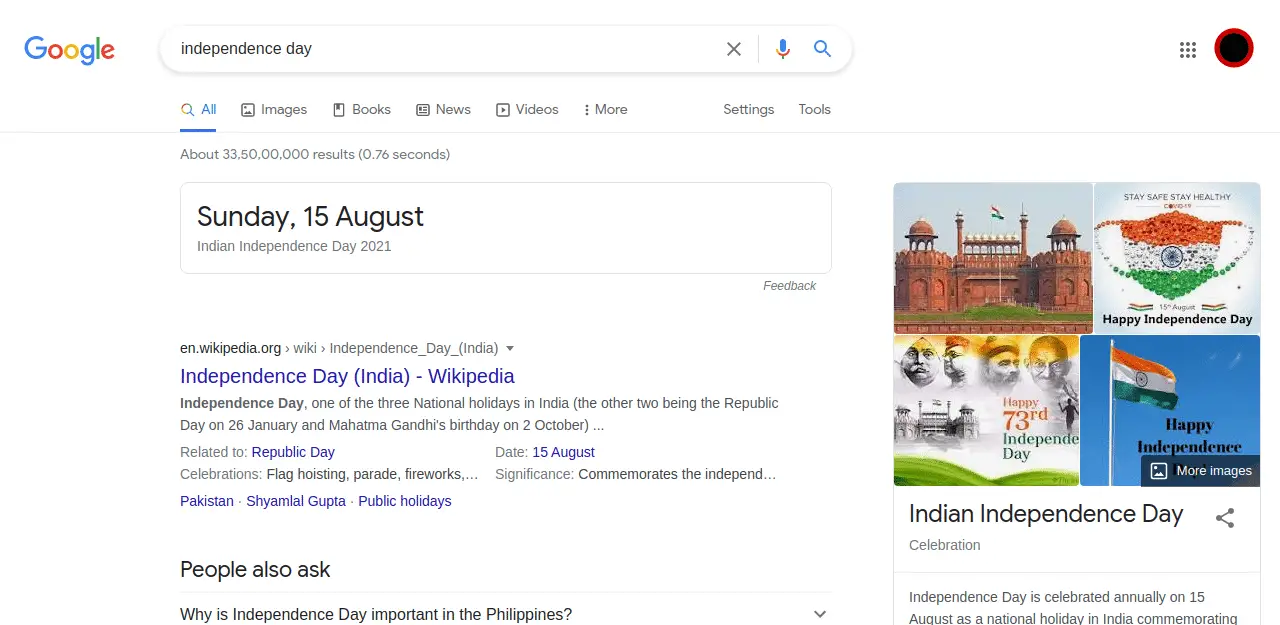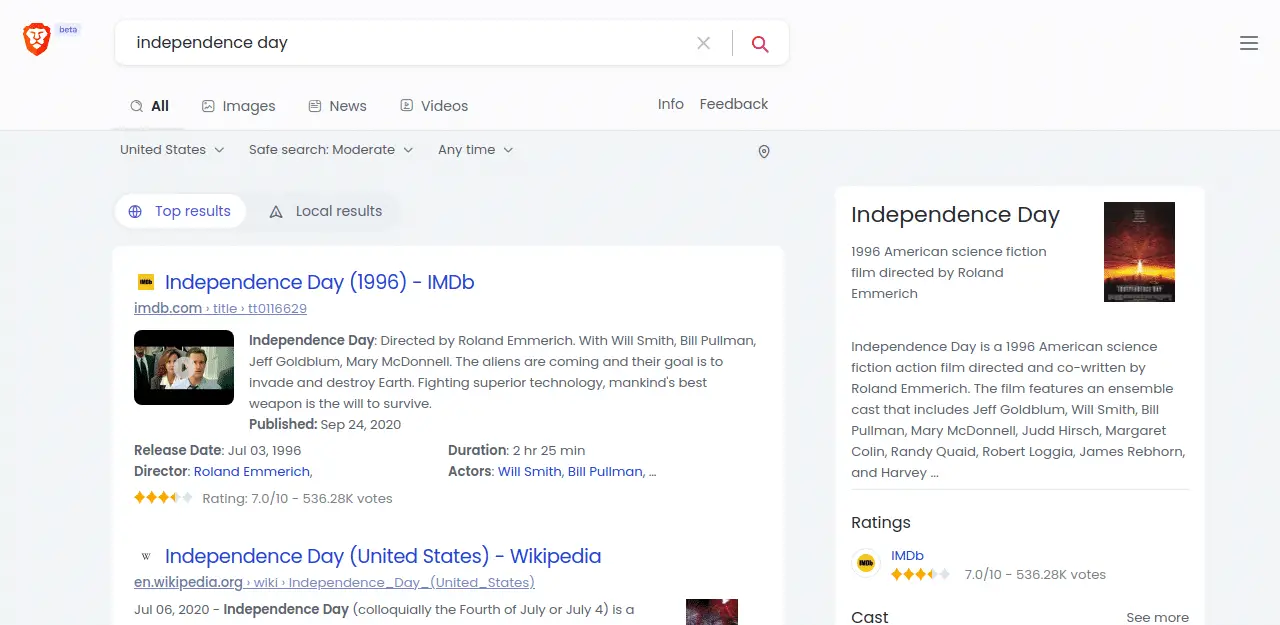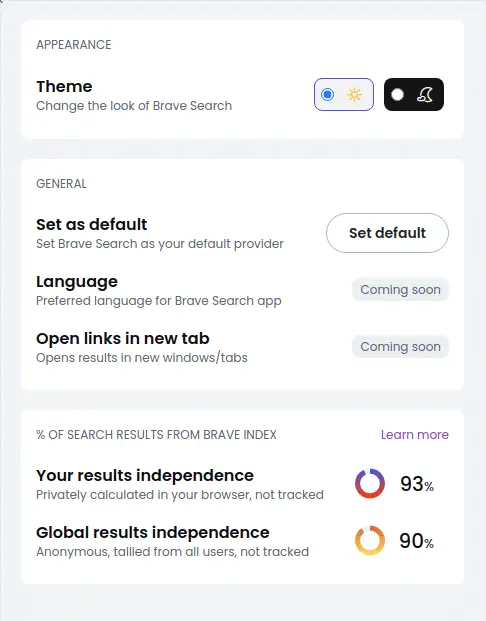Brave Search Engine Opens For Beta Testing
Table of Contents
Search engines are the front page of the Internet. Search engines are where internet users get most of the content, including articles, tutorials, courses, and videos. You probably landed on this article from one of many search engines as well.
So far, the biggest search engine is Google. Google has become synonymous with the Internet. Chrome, the most popular web browser, uses Google as the default search, and most other search engines do the same.
It is no secret that Google and other search engines rely on showing ads to their users. When a user performs a query in the search engine, the search engine collects the user’s private information such as specific location, device type, browser history, etc., to serve personalized ads.
The private information is further shared with other third-party companies in the name of product development & providing more personalized ads.
In simple term, most search engines collect users’ private information and share with third-party companies as most social networking sites do.
Private Search Engines
There already exist some private search engines such as DuckDuckGo, Qwant, and SearX. DuckDuckGo is Google for users who want to protect their digital privacy.
A few months back, Brave, a popular privacy-respecting web browser, announced to launch its own search engine. According to the announcement, Brave acquired Tailcat to build its own search engine called Brave Search. Brave Search will not be relying on tracking users across sites, harvesting users’ private information, and making the industry’s first independent privacy-respecting alternative to Google Chrome and Google Search, the announcement said.
Brave Search Opens For Beta
Just a few days back, Brave opened its search engine for Beta testing. Brave sent the beta invitation to users who opted to try it on the Brave Search page. I am glad to be invited for beta testing. I have been using Brave Search since I got the invitation.
Brave Search focuses on providing a similar experience that Google Search provides. But the question arises — how is it possible without tracking users, harvesting users’ data, and sharing it with third-party companies? Well, Brave has answers to all those questions.
Anonymous Search
Anonymous Search might look impossible these days as every search engine provides localized search results and stores the user’s location. Well, this search engine, by default, does not know the user’s location. It serves general search results.
Users who want localized results can toggle on “Anonymous local results” from the settings. Turning this feature on will allow localized search results. The way the “Anonymous local results” feature works is that Brave Search provides results based on the user’s IP address. To make it anonymous, Brave does not store or map this IP address with an actual person.
When I perform a query to find the nearest hotels, the search engine takes the query and IP address and serves me the localized results. Because it’s not storing and mapping this IP address to me, all that Brave knows is that somebody performed a query to find the nearest hotels with some IP address.
It’s important to know that this feature is toggled off by default. Without turning this feature on, all users’ queries will be general.
The other way to fetch localized results privately is to mention the location in the query. For example, if I live in New York and want to know popular heritage sites in New York without revealing my IP address, I can toggle off the “Anonymous local results” feature and query “popular heritage sites new york.”
Search with Google
Keyword – independence day

Searching with Google will instantly give you localized search results. It does not matter whether you wanted it or not. As you can see, I just searched for independence day, and it gave me the results based on my location.
Understand that just using my location alone to give me localized results isn’t bad but mapping or linking this specific search query with me is.
Search with Brave with “Anonymous local results” on

Searching a general query with Brave Search’s Anonymous local results by default provides general search results. But, it gives an option “Local results” to view localized results. This option is there because the “Anonymous local results” setting is on.
Search with Brave Search with “Anonymous local results” off

Search with Brave with “Anonymous local results” off only gives general results. No “Local results” option this time.
Search with Brave with “Anonymous local results” off (Localized query)

To get localized results without “Anonymous local results” on, mention the location in the query itself.
Google Fallack Mixing
Google fallback mixing is another way by Brave to provide search results to its users while building its search engine. When a user performs a query and Brave Search does not have enough results to show, it sends the same query to Google Search, gets the results, mixes with Brave Search results, and sends the output to the user.
Brave Search Independence
Brave is building a non-biased, private, and independent search engine. Achieving this is not possible in the short period as it’ll continuously have to work on its algorithm and at the same time increase the size of its index. Brave Search is in its early days and is temporarily relying on help from other search engines like Google and Bing.
A percentage of users’ queries served by Brave Search include results from other search engines. Where the search engine thinks it hasn’t enough data to provide for a specific query, it sends an API call to other search engines, collects search results, mixes with Brave Search results, and serves them to users. Btw, it all happens privately.
To view the percentage of queries served independently to its users, click on the search engine settings “hamburger” icon.

It shows what percentage of your queries were served independently by the Brave Search and global results independence calculated by queries performed globally.
At the end of the day, the search engine will be completely independent, but at the moment, as the Brave team is working on building its product, it’s calling other APIs for more results.
Conclusion
I have been using Brave Search since I got the invitation 13 days ago. I think it’s faster than many other private search engines; it starts recommending queries as I type. Although, so far, it is not faster than Google Search. I expect to see it come close to Google one day in terms of speed.
In terms of data accuracy, 93% of my queries were served independently by the Brave Search. If I have to rank search results accuracy based on my experience on a scale of 1-10, I’ll give it 7. It’ll take some time; as the users increase, I hope the accuracy will go up.
To get the Brave Search beta invitation, show your interest by signing up for the waitlist.
Set Brave Search as the default Search engine in Brave
You can set Brave Search as your default search engine if you have received a Beta invitation for Brave Search. This way, any query performed in the URL bar will be served to Brave Search.
Go to Brave settings > Search engine and click Manage search engines.

Click “Add” button to add a new search engine. Now type the name, keyword, and URL with %s (keyword).

Basically, we are giving our web browser a URL to search keywords. In this URL, we are marking keyword with ‘%‘ so that the web browser can replace this keyword with the actual keyword searched by the user.
LinuxAndUbuntu Newsletter
Join the newsletter to receive the latest updates in your inbox.



